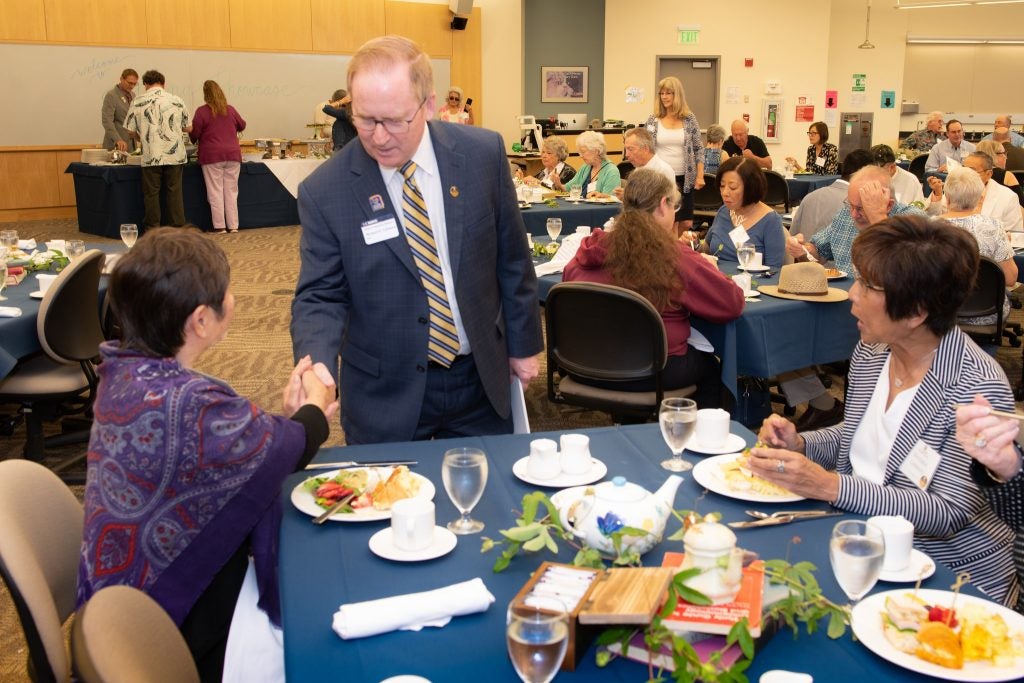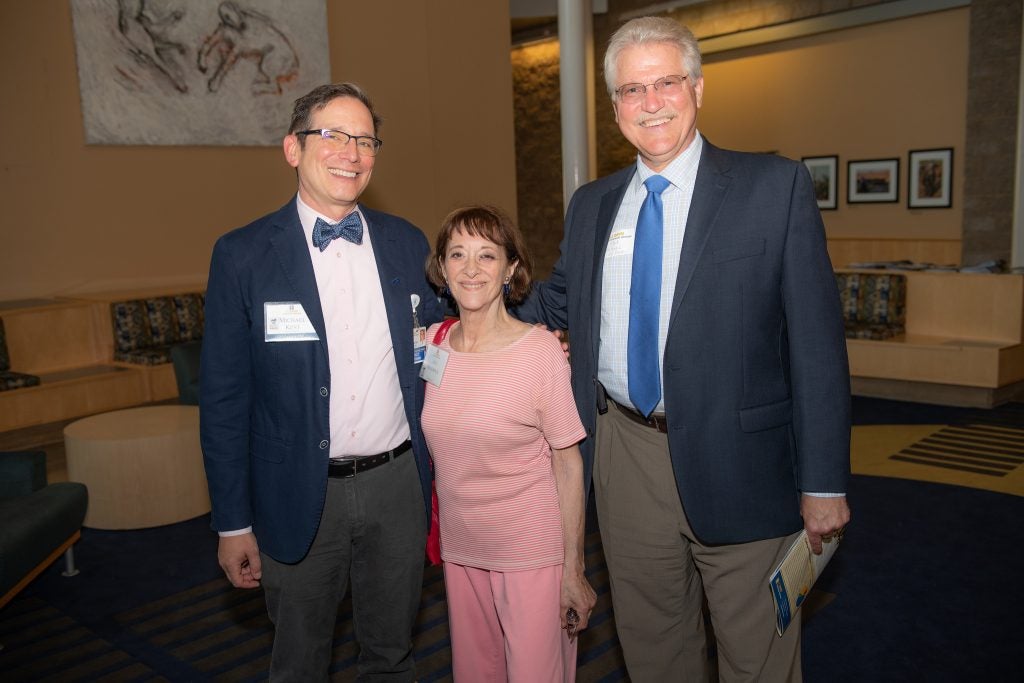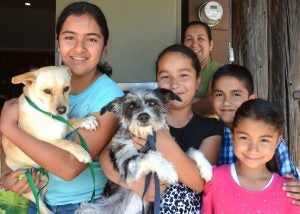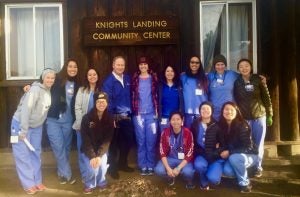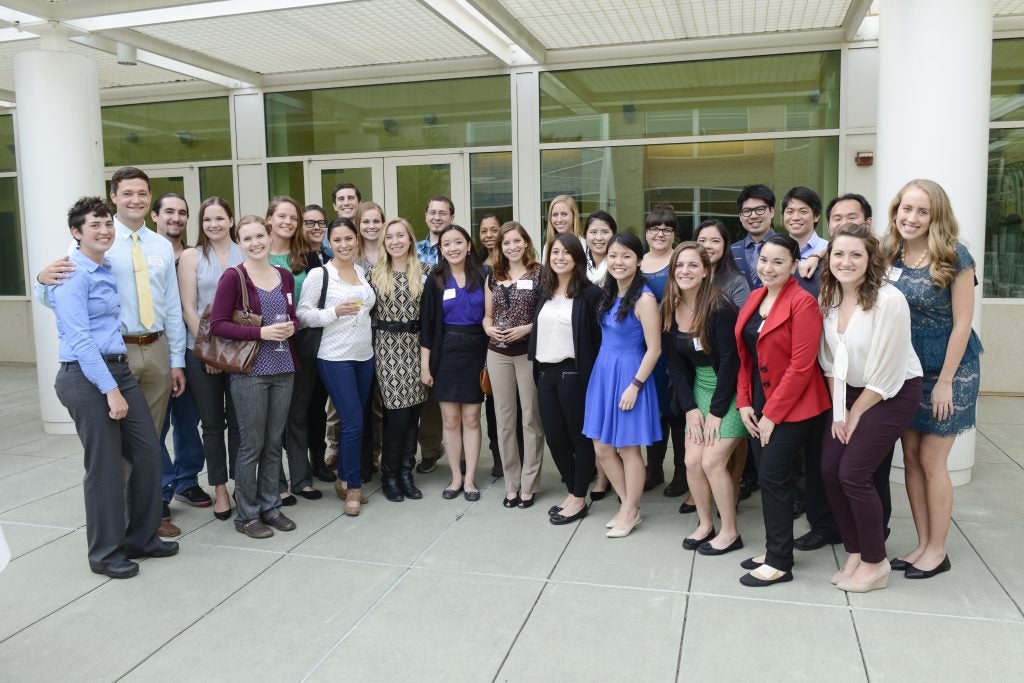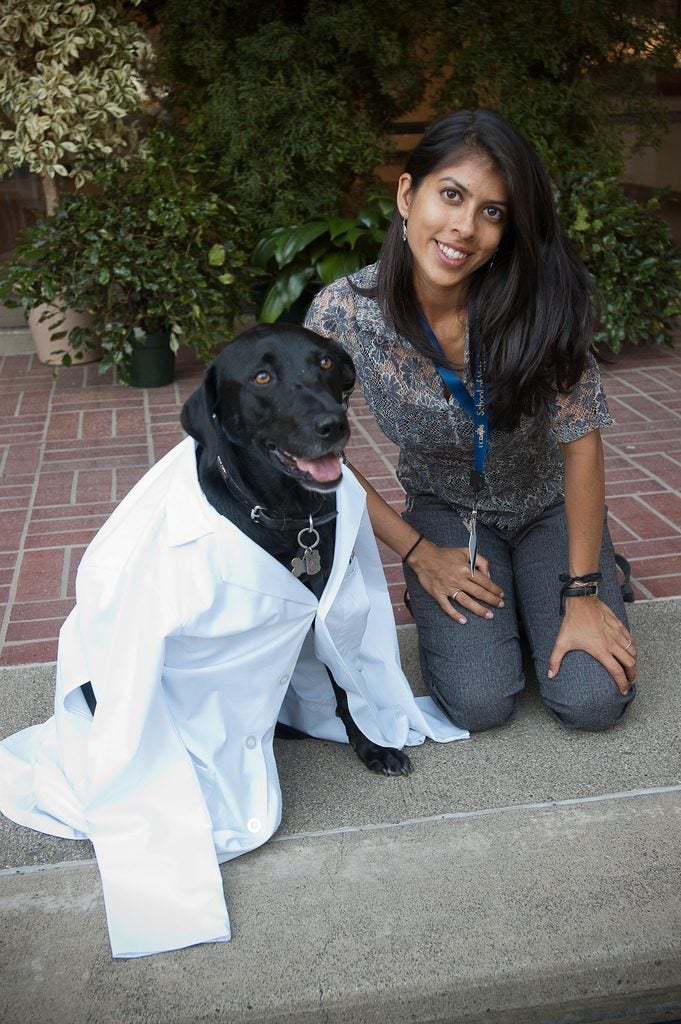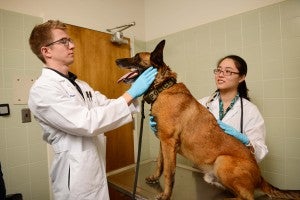“Curiosity is the wick in the candle of learning.” –William Arthur Ward
A basic characteristic to becoming a good student, an astute researcher, or insightful clinician is curiosity. The ability to ask questions to learn new information and explore new paths of knowledge is forged from the trait of being inquisitive. Our school has led veterinary medicine and contributed to fundamental knowledge in biomedical and agricultural research by talented faculty, staff, and students who seek new and innovative ways to advance the health of animals, people, and our planet. Many of these advances were on full display at our Spring Showcase, an annual event to highlight the accomplishments and aspirations of the Centers for Companion Animal Health (CCAH), Center for Equine Health (CEH), and our Karen C. Drayer Wildlife Health Center (KCDWHC).
The CCAH, led by Director Dr. Michael Kent, continues to build upon a rich history of advancing the health of companion animals through research grants, resident project funds, and equipment grants. At the Showcase, Dr. Kent reviewed how the CCAH provided over $1.5 million in research support this past year, made possibly by generous donations from grateful clients, foundations, and individuals united in their passion to help discover new ways to help animals through studies to solve the toughest problems faced in veterinary medicine. In turn, those faculty, residents, and students who are the beneficiaries of this support have responded by creating new knowledge that is at the leading edge of understanding in veterinary medicine. From the discovery of genetic clues to explain diseases in chondrodysplasia in dogs and humans, to bringing new hope to shelter animals through evidenced-based studies to reduce disease and increase adoptions, CCAH funded investigators envision ideas that lead to innovative solutions in animal health.

